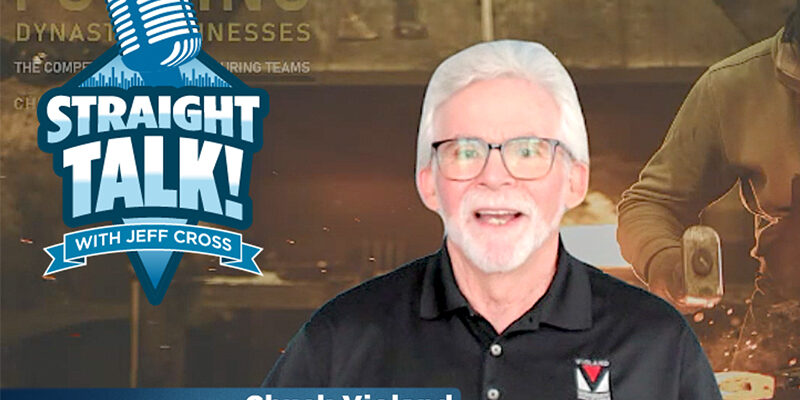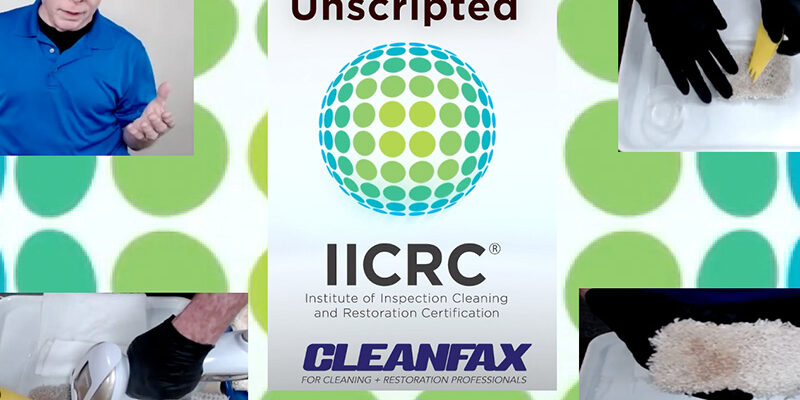The Remarkable Leader’s Secret

by Howard Partridge
In recent Cleanfax issues, we’ve been looking at what it takes create a strong company with strong leadership, the kind that wows everyone who encounters it.
In previous articles, I’ve shared the key business-building practices of goal setting, creating a business vision and plan, and implementing sales and administration systems. This whole series of articles is available at Cleanfax.com/HowardPartridge.
Now we turn our attention to the most important aspect of any cleaning and restoration business: Leadership.
If you’re like most people, you don’t see yourself as a leader. But the fact is everyone is a leader, and everyone can be a remarkable one.
Leadership expert John C. Maxwell says, “Leadership is influence. Nothing more. Nothing less.” Everyone has influence in someone else’s life.
The question is whether that influence is positive or negative. It doesn’t take much skill to tell people what to do or to yell at them. And, while it may take great skill to manipulate people, people resent that approach. Maxwell says you gain influence in other people’s lives by “adding value” to them. He explains that when you don’t value people, you de-value them.
After three decades building an exceptional cleaning business and two decades training others to do the same, I’ve come to realize that what’s at the heart of poor leadership is a lack of value for staff and for other human beings in general.
I was interviewing a manager of a client company on an onsite consultation project, and she lamented difficulties she’d had getting the employees to do what she needed them to do.
“It’s just common sense,” she said.
Many business owners feel that their employees should have the same motivation they have, but those in charge forget that the employees don’t have to make payroll every week. Your employee’s house isn’t on the line.
But there is a way to engage your team to a point at which they will care about you, your business, and your future. When you add value to them — when you support them and encourage them — they will respond. That is, if you hired the right people.
A valuable staff
It all starts with who you attract and hire. If you have someone that, no matter what you say or do, they still cannot perform up to your standards, then you had better look in the mirror because you hired that person. Assuming you do have the right person and value people for their inherent worth and who they can become, you can get them to perform by showing them how much you appreciate them.
While teaching the importance of valuing your team members at one of my conferences, a first-time attendee blurted out, “Don’t they have to earn my respect before I give them respect?”
“It’s just the opposite,” I shot back. “If you give them respect, they will give you respect. If you help them, they will help you. If you encourage them, they will encourage you. Unless you hired the wrong person.” Any way you slice it, the responsibility to lead is on the leader.
The results of value
In their phenomenal book Beyond Entrepreneurship: Turning Your Business Into An Enduring Great Company, Jim Collins and the late William C. Lazier concluded the entire book about extraordinary companies with this: “The theme behind everything we’ve observed came to the front: respect. Therein lies the secret, if there is one. Great companies are built on a foundation of respect.” The authors point out the importance that leaders not only value clients, but also themselves, their relationships, and their employees — “people at all levels, and from all backgrounds.”
Respect, say Collins and Lazier, opens many doors including creating an open, trusting, honest relationship between leaders and their people. They explain that this respect also empowers team members to value the company and the roles they play, adding that remarkable leaders “respect their people and therefore they give them freedom to act and make decisions. They respect their people and therefore believe in their inherent creativity, intelligence, and ability to solve problems.”
By creating a culture of respect in which you recognize and appreciate the value each employee brings, you provide a reasonable platform for higher performance expectations, higher standards, and greater challenges, according to Collins and Lazier. They say, “Ultimately, employees in outstanding companies attain consistent tactical excellence because someone believes they can.” Simply valuing your people could be all they need to thrive.
The authors go on to point out that building this respect within your company makes your company itself respected for the positive impact it has “on the world” in addition to the services you offer your customers and the working environment you offer your employees. Eventually that respect you put out makes your leadership and company so remarkable that other companies want to be like yours.
“You too can build a company that stands for something, that sets a standard, not only of performance, but also of values. You too can build an organization that rises above the fray and shows by its success that greatness and fundamental human decency and respect go hand in hand,” Collins and Lazier add. “You too can build a company that you can look back on at the end of your life and say, ‘I’m proud of what I’m leaving behind, and I respect myself for the way I’ve gone about doing it. My life has been well spent.’”
I don’t know about you, but that’s what I want.
Remember, you can have everything in life you want if you just help enough other people get what they want.
Howard Partridge started his cleaning business from the trunk of his car over 31 years ago and built it to more than $3 million a year. He teaches cleaning and restoration companies to have phenomenal success. Partridge is the exclusive small business coach for Ziglar Inc., the John Maxwell Coaching Team founder, and a bestselling author.












